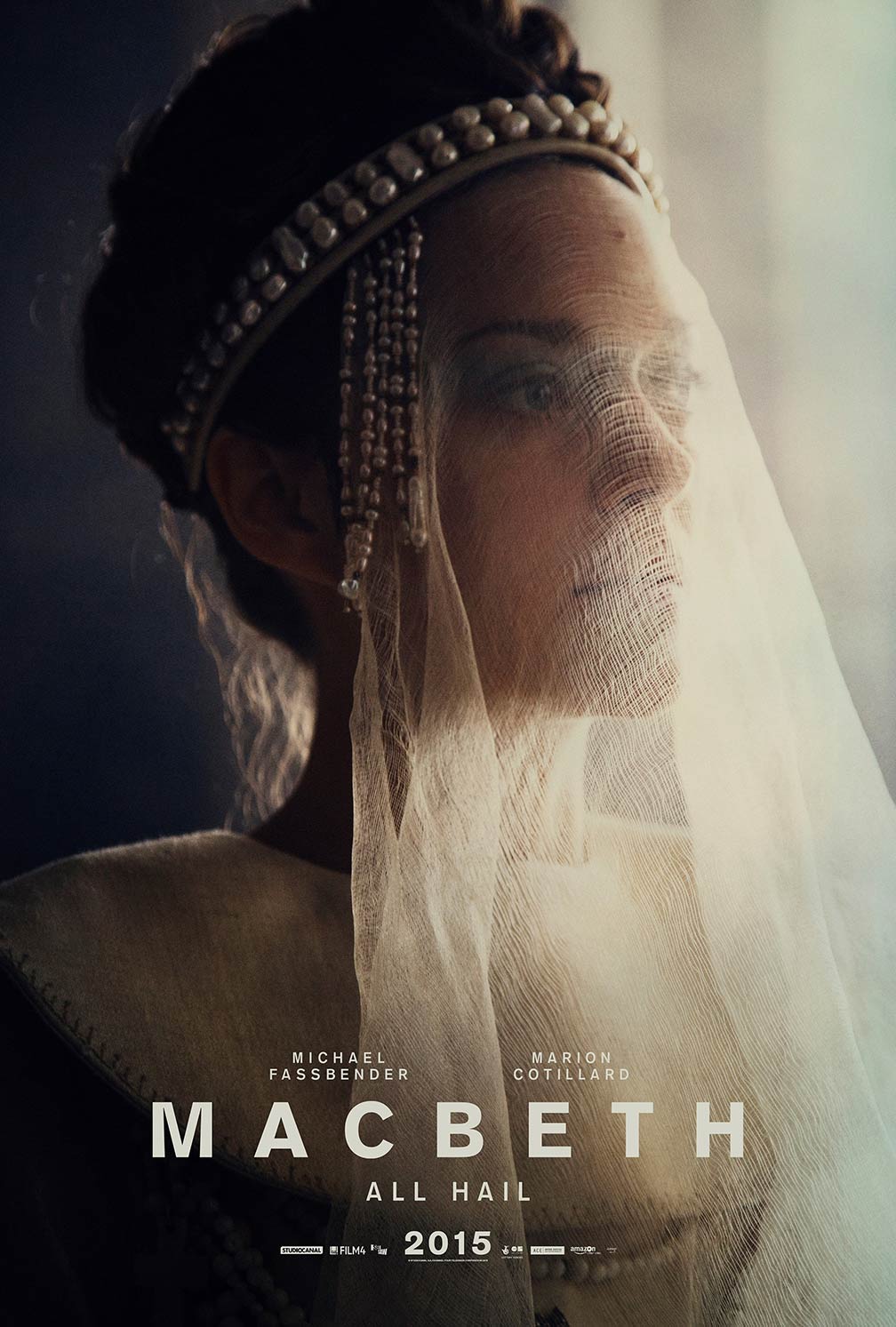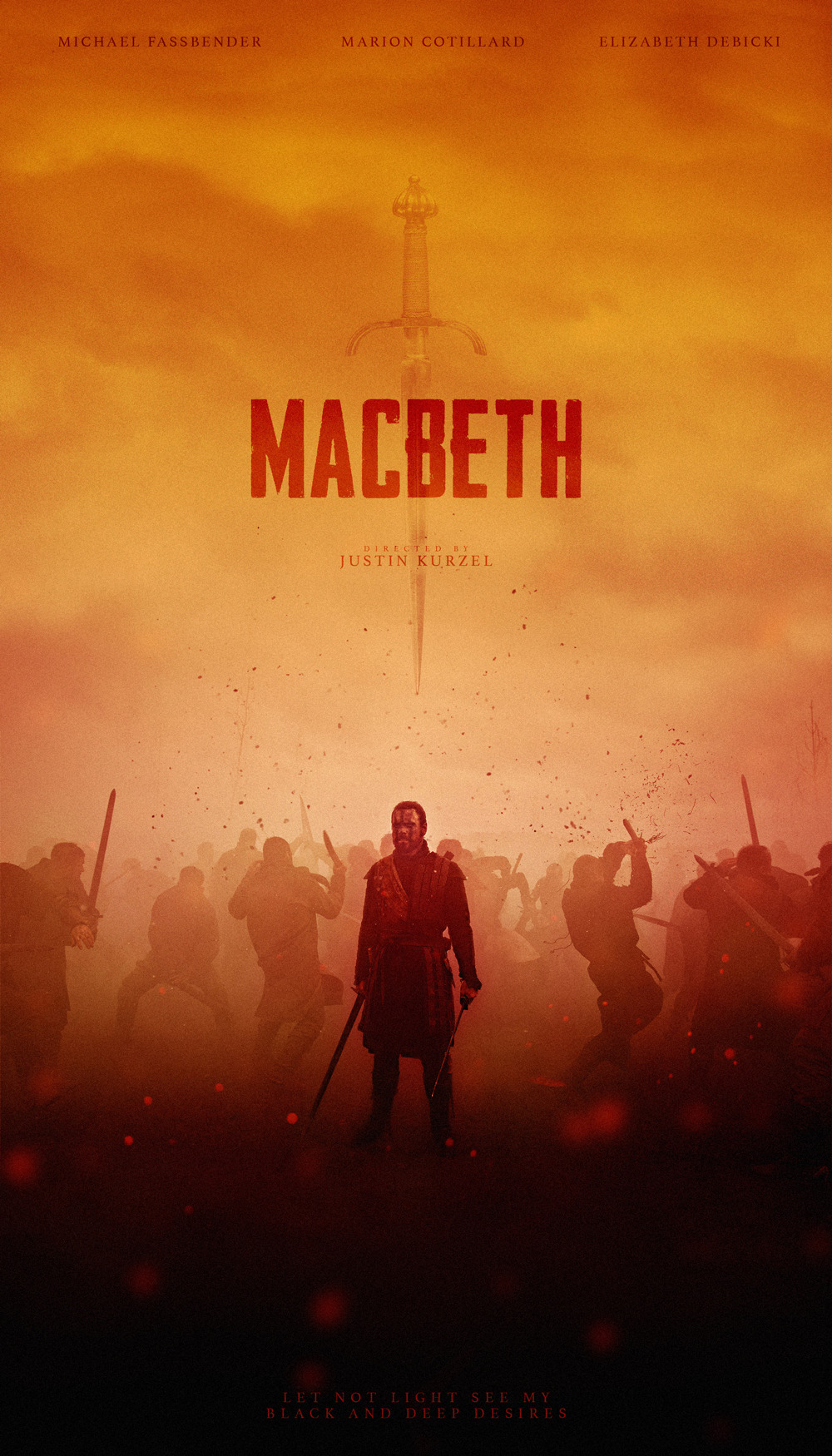Director: Justin Kurtzel
Cinematographer: Adam Arkapaw
Justin Kurtzel and Adam Arkapaw devised an opening that left me in awe of how twisted and dismal the world of Macbeth was. I recognised a sinister dreamlike quality embedded in the film that helped me, as a modern audience, manifest empathy for Macbeth and his wife. Enriched with strong coloured visuals of saturated red, washed-out greens and yellows, the haunting aspects of a deeply tormented man were added as part of the overall storytelling.
While this is a key visual strength, motion was also utilized to bring the imagery to life which brought me to understand the thinking behind Shakespeare as he visualised his writing. The storyline of the original play, in comparison to that of this film, is slightly different despite its congruency on most significant plot points. An example of how it was different is when the director, Justin Kurzel, showed the funeral of Macbeth’s child as the introduction of the film. Throughout my exploration of the written form of Macbeth, the theme of irony around the fact that Macbeth has no heirs to his throne was not emphasised as strongly as in the film. This was an interesting approach to this adaptation and definitely assisted with making better sense of the reasoning for the occurrences throughout the movie.
The screenwriters for the movie tinkered with another ambitious tactic of using a certain unnamed boy soldier as a means of connecting Macbeth to the fragile and wicked world of war. Despite being familiar with the sight of death and savagery, the image of the dead boy becomes a recurring memory that haunts him throughout the movie. Perhaps the boy frightens Macbeth about the cruelty that his child may have faced living in the world Macbeth rules today. As the leader of the clan, Macbeth could have also felt that he lost another child considering that his real child died early on in the film.
Half-way through this remarkable film, I started to notice that it requires the viewer to appreciate the original play because it is quick to transition between the various significant plot points and may leave the viewer confused had they never heard of Macbeth before. I don’t think of this as a negative aspect of the movie, rather as a symbolic quality of the nature of Shakespeare’s writing. Yet what I did find the downfall of this movie is its mode of dialogue.
The dialogue is lyrical and symbolic in many ways, but it’s unconvincing when you’re used to modern ways of speech. I found it easier to relate to the emotions when the actors performed subtle but detailed movements and facial expressions. If less dialogue were used, perhaps I might have found it more captivating as it distracts more than it positively contributes to a story being retold through a visual medium. Death scenes, for example, are literally speechless and powerfully presented. However, the long monologues that follow, left me and probably others distant from the huge event that just happened. This is not to say that the dialogues are meaningless because they are of course intrinsically important to the story, but in modern culture, the film loses its momentum when it attempts to act more like a play rather than a piece of cinematic adaptation.
As this is my first Shakespeare film, I think it was an extremely powerful and accurate Shakespeare adaptation, but is hindered in its ability to immerse a modern audience into the authentic emotions of that era. I would definitely recommend watching this film for all Shakespeare lovers.



Leave a Reply